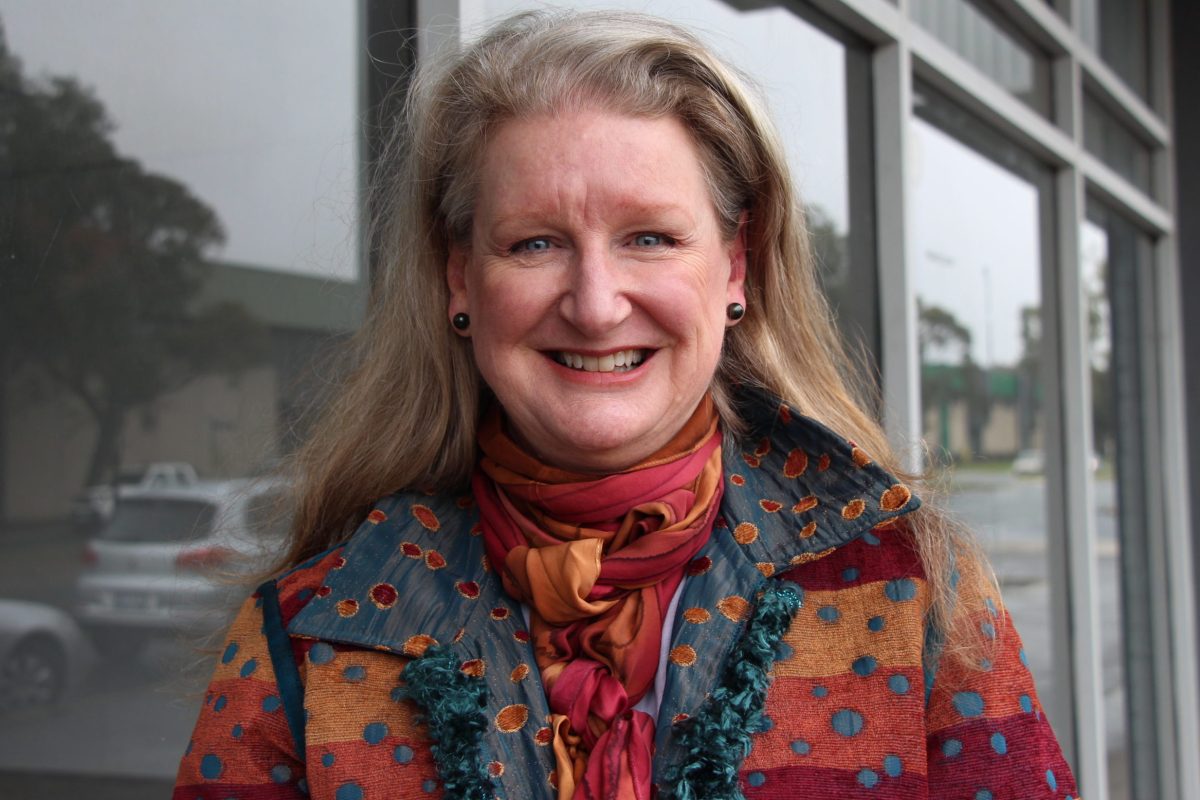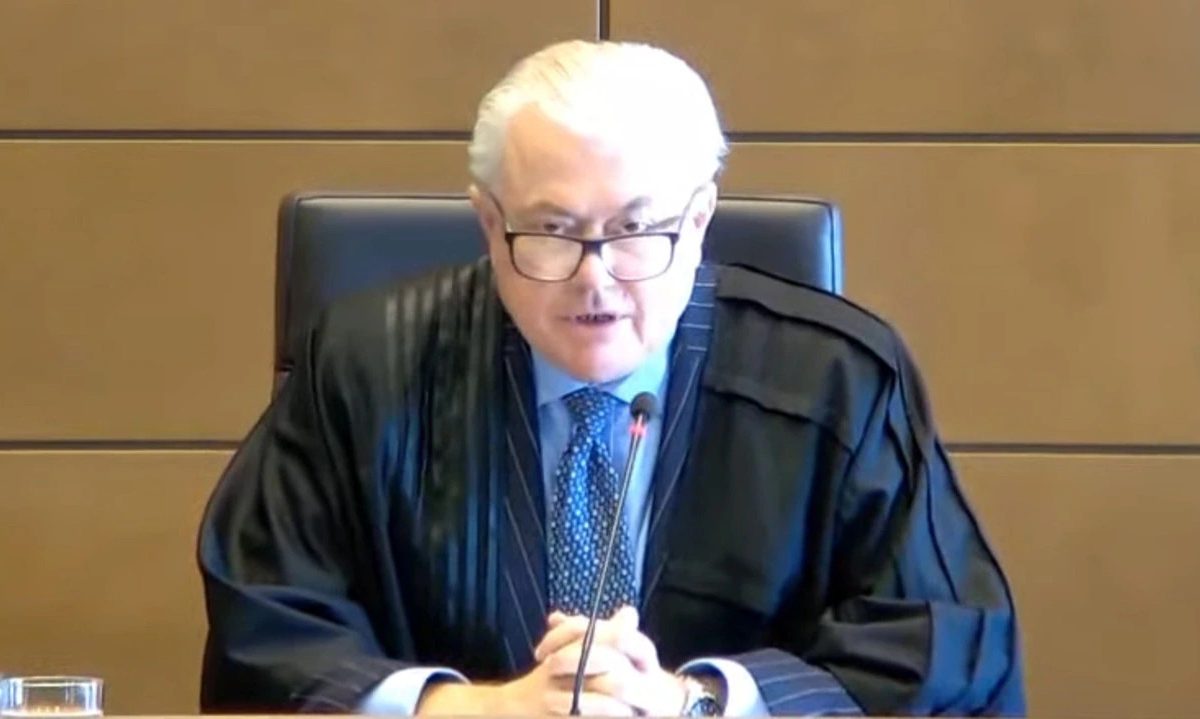Letter writer ROSS KELLY, of Monash, says: “It seems the recent wet spell – which is beginning to feel like a new climate – has created permanently damp ground that has allowed leeches to migrate hundreds of metres from creeks and storm drains, right to our doorsteps.” That’s right, leeches!
HAVING lived in Canberra for 30 years, I have seen many earthworms. But a few weeks ago I found myself oddly repulsed by the way some skinny, agile worms on my doorstep looked and moved about.

Slightly more tapered to a point and with an uncanny ability to climb steps, they still generally resembled a smallish, dark brown earthworm; but from time to time they would stop and rear-up a bit, swaying from side to side – as if seeking something. They gave me the creeps, but I let them be.
Later, I found two inside my house – including one half-way up a door! Earthworms don’t climb steps, and certainly can’t slither up vertical surfaces! Yikes!
Now I was killing these things on sight, and determined that I would hit the internet to see if my hunch was right; that these unsettling little creatures could be leeches.
Bingo! I hadn’t even finished typing into Google when it completed my question unbidden: “Leeches… in Canberra”!
I’m sure an ecologist would reply that leeches aren’t anything new in these parts. But apparently an awful lot of people are now for the first time finding these little horrors on their grass and pavers, and in their gardens. And in my case in the house!
It seems the recent wet spell – which is beginning to feel like a new climate – has created permanently damp ground that has allowed leeches to migrate hundreds of metres from creeks and storm drains, right to our doorsteps.
Perhaps just an irksome annoyance for humans, this development is a real cause of concern, though, for parents of very young children and pet owners.
Canberra vets have seen an influx of cats and dogs with leeches in their eyes and noses. In the eyes, they can be inconspicuous; looking rather like a swollen eyelid. Vets say it is a professional job to remove leeches from a pet’s eye, as eye damage is a real risk in the process of removal.
I urge pet owners to check their furry buddies on a daily basis. And – regrettably – this may be our “new normal”.
Ross Kelly, Monash
Money grubbing made the problem
THE irresponsible, money grubbing decision by the ACT government to allow replacement dual occupancies on “Mr Fluffy” blocks in the RZ1 (single residence per block) suburban zones, has caused redevelopments like that described in “Unbelievable, go see planning failure for yourself” (Paul Costigan, CN July 21).
Redevelopment controls clearly need to be tightened up in such cases to preserve time-honoured suburban privacy and amenity, especially the cooling green swathe of interconnecting backyards. Mandating basement garages in these cases (they’re currently only permitted if the block street frontage is 30 metres or more), and including their floor space in “plot ratio” (maximum floor space: land area) calculations, could generally result in about 30-40 square metres of additional open space per dwelling when compared to normal garaging.
That open space should be primarily located at the rear of the block, and given over to “soft” landscaping including trees and shrubs.
Jack Kershaw, Kambah
When the brickies took off their bras
IN response to Vesna Striker’s comments about females in the construction industry (Letters, CN August 4), I was told the following apocryphal story by a site manager who was there and swears it is true.
Working on the construction of the DFAT building in Barton (late ’80s, completed in early ’90s) was an all-female team of bricklayers – tough, extremely competent and admired and respected by the other workers on site.
One blazingly hot summer morning, the male workers on site, who were usually dressed in Stubbies and T-shirts, got rid of their shirts. Some of the women tried to cool off by removing their bras from underneath their shirts. When this did not seem to be effective enough, their shirts came off.
A union representative approached the head brickie and challenged her: “You can’t do that!”
The worker stared the union rep in the eye and lifted him up by the front of his shirt. “Oh, can’t we?” she said – at which point all of the workers on site were asked if anyone objected to the women having the right to remove their shirts, the same as the men.
No one did. Apparently there were no more challenges from the union, and the female brickies carried on.
Karina Morris, Weetangera
The ‘roos are well fed and out bush
JULIE asks where have all the kangaroos gone? (Letters, CN August 4). Julie, the kangaroos are well fed out bush and, unlike during a drought or long summer, they don’t need to wander into town to munch on our green lawns/verges, parks and sports grounds.
Secondly the kangaroo-proof fence along the Tuggeranong Parkway has stopped them getting hit by cars. Well done, ACT government.
So us not seeing kangaroos is a sign they are both safe and quite content out bush where they belong.
Michael Collins, Banks
Praise the minister who stops the shootings
TO the minister that finally stands up for the kangaroo families and puts a stop to the shootings. You will be remembered in history as a heroic figure. You will be remembered and rejoiced.
The people that allow the killing to continue should hang their heads in shame. The numbers of kangaroos has declined, the mobs are greatly affected by the deaths of their family members. Killing is wrong.
Alex Kuch, via email
Time to seize the energy, will and enthusiasm
ACKNOWLEDGING Helen Musa’s strong and long standing support and advocacy for arts in the ACT region, I read her analysis of our ACT arts policy with great interest (“Why Tara’s awfully big arts policy won’t work”, CN August 4).
Central to the article is that if our policy is successfully realised, it could have an even bigger impact on the arts scene than the redevelopment of the Canberra Theatre Centre – but that it will be difficult.
She says the ACT has historically missed out on national funding opportunities and projects, and that for all our will, there needs to be more engagement from higher powers; that without it, we will never succeed.
I agree. But it doesn’t mean we should shy away.
In fact, it’s exactly why we have been so clear about our ambition to be recognised as Australia’s arts capital and how we will get there. Our policy brings together our aims and intentions, and makes the strongest case possible for the growth of our sector.
Together with a new federal government that has put the arts back on the agenda, if this isn’t one of the best opportunities we have ever had, then what is? If we don’t start talking like a serious city now, why should anyone listen?
As we work to elevate the sector as a whole, the opportunities, projects, attention and engagement will come. Rather than being cynical or thinking it’s too hard, now is the time for us all to seize the energy, will, enthusiasm and potential of our sector and join this exciting journey.
Ms Musa concluded that she might be the grinch who stole my vision, but I warmly suggest she revisits the original story’s ending. (Hint: he’s not successful.)
Tara Cheyne, ACT Arts Minister
Break the renewable powerhouse fantasy
THE call by Douglas Mackenzie to plant billions of trees (Letters, CN August 4) is laudable, however Australia needs the income from our quality fossil resources to make it happen and, in doing so, bring electricity to the hundreds of millions of the world’s poor, who have none.
We also don’t need to buy Chinese turbines, pv panels, batteries and cars whose toxic ingredients, mining and manufacture are poisoning the northern hemisphere atmosphere and may contribute to the disasters listed by Mackenzie.
These toxic ingredients, eg: 30 tonnes of carbon fibre in a set of turbine blades, will choke our landscape and dumps for short-term gains provided their whole-of-life consequences are ignored.
The energy footprint of the average turbine is not recovered until 12 years of service is achieved.
We need to break the Australian renewable powerhouse fantasy and get back to the irrefutable logic of nuclear power, which had us ahead when Jervis Bay Plant construction was halted in 1970. We are going to need a nuclear industry to service AUKUS submarines.
Australians should count on our engineers to deliver what the Soviets or politicians cannot conceive, a logical approach to energy generation by small modular reactors, perfect for this wide brown land. The wait will be worthwhile.
Ken Murtagh, Hughes
‘Tardy party’ candidates should start training now
ANY voter with a conscience who is thinking about standing as an ACT candidate for the Liberal Party at the next federal election should start practising now the ways in which their body language – like squirming, shuffling, mumbling and poor eye contact – can be minimised and obscured on the campaign trail.
Supporting the party’s voting record and its so-called policies on climate change and emissions reduction (“Climate win leaves opposition looking like a stranded asset”, citynews.com.au, August 5) will be a spotlit pursuit for them, as would facing up to loyally supporting in public the Opposition’s new leader, and the intransigence and authoritarianism that he has shown already on matters that impact our liveability and survival.
By 2025 this tardy party will have assiduously accumulated an even bigger mountain of off-putting political baggage at the local and federal levels.
ACT Liberal Senate and MP candidates would need to draw on a barrow load of intestinal fortitude and credible creativity while campaigning, because easy weasel words, cut-and-paste party propaganda and fear-mongering proved to be unacceptable to ACT voters in 2022.
Sue Dyer, Downer
Hold the photo and list the exceptions
HAVING received the August 22 letterbox stuffer of “Our Canberra – Belconnen”, may I offer a few observations?
On top of a beaming photograph of our Chief Minister is a catching headline: “Delivering for Canberra’s future”, below which sits a colour photograph of two kids in the grass enjoying their little puppy. It would have been better to exclude the photograph and boldly print the following exceptions under the headline:
- IF you’re not looking for an affordable/available block to build on,
- IF you’re not searching for public housing,
- IF you don’t mind funding expensive antiquated transport,
- IF you’re not indigenous,
- IF you’re a souped up drug user,
- IF you have criminal tendencies looking for a free-kick,
- IF you don’t mind living in dodgy landscaping,
- IF you love apartments and high-rise living,
- IF you don’t mind below-par hospitals and schools; and finally
- IF you enjoy a world-class local government meeting your needs every day who’s only too happy to strap up in 2024 and do you over again.
John Lawrence via email
The irony of Michael’s swipe
THE irony in Michael Moore’s swipe at Christianity (“It’ll take more than God to fix the environment”, CN July 28) and Dr Douglas Mackenzie’s reference (Letters, August 4) is that it is the leader of the Christian world (Pope Francis) who has given the most complete analysis and guidelines for addressing environmental degradation in the document “Laudato Si”, which is easily accessed on the internet.
There is an implicit assumption in the community that if carbon emissions are reduced to near zero by use of new technology in the electricity and transport sectors then it can be business as usual.
The fact is that carbon emissions are just one symptom of the lifestyle of the consumer society with its attitude that everything should serve its immediate interests, regardless of the amount of waste and irresponsible development.
The earth is a shared inheritance and while its resources are immeasurable, it is fragile. There has been a disproportionate use of resources over a long period of time. Meanwhile, entire populations, and especially children get sick and die because of contaminated water or malnourishment.
Without a prevailing sense for the common good there may not even be sufficient resolve for a reduction in carbon emissions, once the full costs of renewable energy begin to be felt.
John L Smith, Farrer
Who can be trusted?
In a world of spin and confusion, there’s never been a more important time to support independent journalism in Canberra.
If you trust our work online and want to enforce the power of independent voices, I invite you to make a small contribution.
Every dollar of support is invested back into our journalism to help keep citynews.com.au strong and free.
Thank you,
Ian Meikle, editor





Leave a Reply